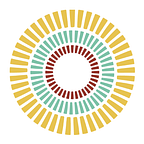NIGERIA: Technology Gave Us a Platform to Speak. Now, We Need To Build It Too.
In Nigeria, technology has created a feminist revolution. Mary Ero not only joined the movement, but joined the tech industry.
by Mary Ero
“Women are using the internet, social media, and online documentation to rewrite our country’s narrative.”
I have seen the difference technology has made for Nigerian women in the fight against patriarchy and gender discrimination.
Nigeria has for many years brandished patriarchy almost like a badge of honor. It was commonplace growing up to experience sexual harassment and discrimination by random men on the streets. I remember going to a book fair with my mother at age 10 or 11 and feeling the weight of a man’s pelvis against me as we stood in the crowd.
When I was a teenager, bus drivers attempted to grab us at bus stops on our way to the park. If the victim spoke up, she was met with a chorus of ‘ashawo,’ the local term for prostitute.
There was no safe place in our institutions or even in our own homes. My friends and I would rant in private about how disrespected we felt by yet another man, our parents, or relatives. But nothing seemed to change. Then technology gave us a platform to speak out.
The past decade was a tipping point. We witnessed the 2014 #ChildNotBride campaign that sought to eradicate child marriages in Nigeria. Amid heightened rates of gender-based violence and discrimination, Nigerian women amplified their grievances through protests driven by online hashtags such as #FemaleInNigeria, #ArewaMeToo DontTouchMe, and more recently, #EndSARS.
While some may argue this change has not cut through Nigeria’s deep-seated traditional customs and ideals, there is no doubt that it is significant. Women are using the internet, social media, and online documentation to rewrite our country’s narrative. Nigerian authorities and lawmakers have begun to treat rape, domestic violence, and gender-based violence more seriously.
At the beginning of 2020, I decided to make a gargantuan leap to become a part of the tech industry that has made so much possible for Nigerian women. At age 42, with a young child and an almost two-year unemployment gap, I made my foray into UI/UX design-a somewhat dramatic departure from my media and communications background.
I earned two certifications in UI/UX design and became knowledgeable in a field I previously found daunting. I did this all through online study without paying anything more than the cost of my internet service. This is a big deal for me, and a win for my country.
A career in technology affords me an income and career longevity. It also provides me the skills necessary to escalate my Nigerian sisters’ pleas for change beyond our immediate community. I intend to create a women-centered frontend development agency that gives back by training and supporting women.
Through my work, I’ve learned how we can break technology barriers for women. We must empower women to be makers and users of technology and allow more women to use these tools.
The first step to create an accessible digital space for women is to provide affordable internet access. In 2019, the global gender gap between male and female internet users increased by about 17 percent due to increased male users in developing countries.
Forbes estimates 1GB of data costs $2.22 in my country, the same country where more than 40 percent of the population live on less than $1 per day. The socio-cultural climate ensures the economics are automatically skewed against women.
A solution is to create heavily subsidized workspaces for working women in urban areas and free internet cafes for non-working women or those in rural areas.
We need more women working in tech. I say this knowing the many incubators and accelerator programs aimed at bringing women into STEM careers. These programs’ shortcoming is that they usually seek young candidates with exceptional academic abilities. Another way is to have more women in high-powered, well-paid positions. We need to bring women to the decision table to share their expertise and raise our concerns.
Finally, for all the progress and attention women garner with different hashtags, campaigns, and movements, we are still working in silos with no concerted action. We need to find a way to aggregate all our efforts online by region, continent, or other alliances.
Let’s unite together using the tools available to us, the tools that connect us across borders-the tools that we must transform by being a part of their development.
This story was published as part of World Pulse’s SheTransformsTech Campaign and is included in the #SheTransformsTech final report. Download the report to find out what grassroots women and gender-diverse individuals from 60+ countries say individuals, policymakers, and tech companies must do to make tech equitable for all.
Originally published at https://www.worldpulse.com on April 21, 2021.
